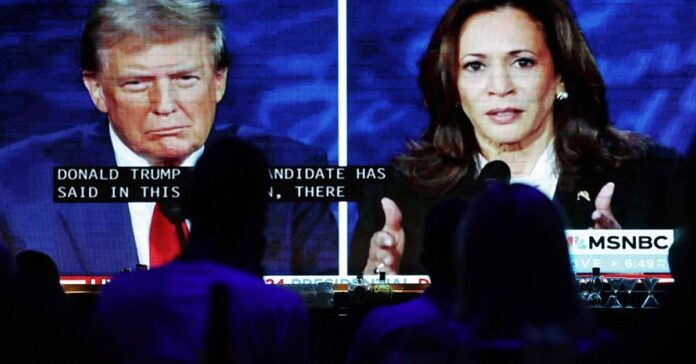Academic Fei-Ling Wang notes that many Chinese voters in the US presidential election base their votes on the candidates’ remarks and postures about China, without necessarily knowing the real policies and rationale behind them, even though the US government’s China policy has remained consistent across different administrations.

We are now in the final stretch of the unprecedented and dramatic 2024 US presidential elections.
After incumbent US President Joe Biden withdrew from the race, Kamala Harris, over 20 years his junior, quickly secured the support of the Democratic Party. Her words and actions have transformed her previous weak image from over three years as vice-president. Her choice of the pragmatic and grounded Minnesota governor Tim Walz as her running mate also reflects a seasoned and strategic decision.
Within just a month, the Democrats, which were on the brink of faltering, have boosted their chances of winning. Current polls frequently show Harris ahead of former US President Donald Trump; the Democratic Party also has the upper hand in several major swing states.
Barring any unforeseen events or major surprises, it seems American voters are set to make history once again: the US will welcome its first woman, first Black-Asian American, and first Asian American president.
Chaotic battle with blurred lines of support
Undoubtedly, with around 60 days to go until the election, Harris holds a clear overall lead, but her advantage in the swing states is less pronounced and often within the margin of error. Given the ups and downs of the elections over the past 60 days, both parties have wisely determined that the competition is intense — no one dares to let up.
This year, the campaign teams of both parties even began to poach supporters from the other side to refresh and bolster their own image and attack their opponents.

Both parties still vividly remember how Hillary Clinton had won the popular vote but lost the electoral vote eight years ago. As a result, Trump and Harris are meticulously covering all their bases.
The presidential race clearly demonstrates the physical demands of the job: Harris revived Bill Clinton’s bus tour tactic from over 30 years ago, braving the heat to visit the rural areas in swing-state Georgia; while Trump is making frequent trips to swing states to rally support. With one candidate nearing 60 and the other being 78, their tireless efforts alone make it inexcusable for voters not to vote.
This year, the campaign teams of both parties even began to poach supporters from the other side to refresh and bolster their own image and attack their opponents.
At the Democratic National Convention, former Republican congressmen directed sharp criticisms against Trump, with many senior Republicans even publicly endorsing Harris. Meanwhile, a former far-left Democratic congresswoman who has aligned herself with Trump has been equally relentless in her criticism of Harris.
The Kennedy family, which comes from a long line of Democrats, even saw a “betrayal” when Robert F. Kennedy Jr decided to endorse Trump and become an “honorary member” of Trump’s inner circle.
Historically, like African Americans, Latinos and other minorities, Chinese Americans and Asians Americans mostly support Democratic candidates, which seems to be the case this year as well.
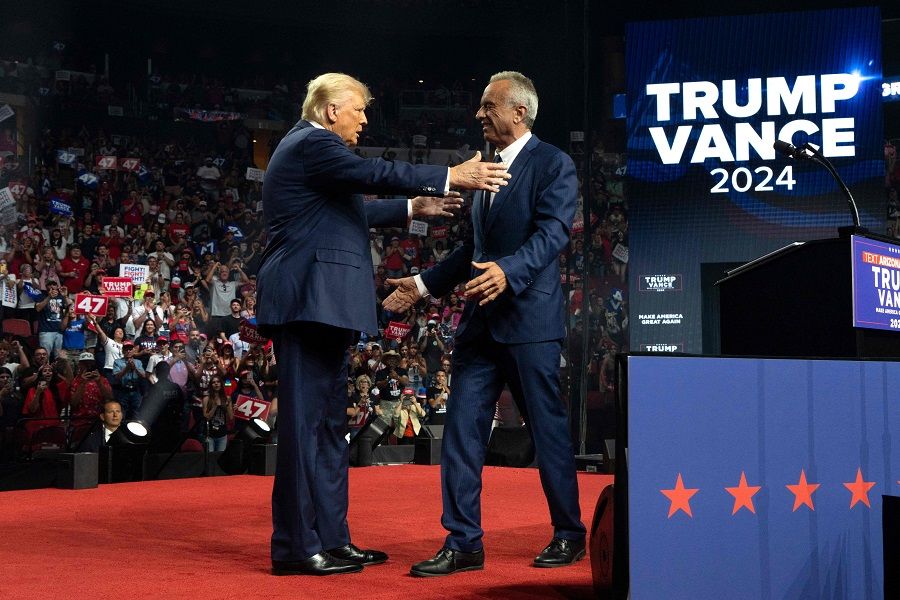
While it is a good thing that both parties are striving to do better and champion the solidary banner of “country first, political party second”, the intensity of such a chaotic battle with blurred lines is also apparent.
The Chinese, especially Chinese Americans who are eligible to vote, are naturally concerned about this clash between the two parties and are expected to donate, rally and vote this year more so than ever before.
Historically, like African Americans, Latinos and other minorities, Chinese Americans and Asians Americans mostly support Democratic candidates, which seems to be the case this year as well. But there are also many staunch supporters of Trump among Chinese Americans, even in my circle of friends.
Culture war between Trump fans and haters
Although statistics suggest that Trump fans might still be a minority among Chinese Americans, their voices and influence are powerful. For several years, they have had a strong presence in Chinese language (especially simplified Chinese) media and we-media outlets in the US.
They come from various places, covering many industries and social classes, with no lack of elite and accomplished people. They include billionaires imprisoned in the US for financial fraud, exiles and organisations banned in China, as well as many professionals, online influencers, academics and even Chinese who do not hold US citizenship.
The divide and opposition between Trump’s fans and haters appears to be the first “cultural war” among Chinese Americans over American politics…
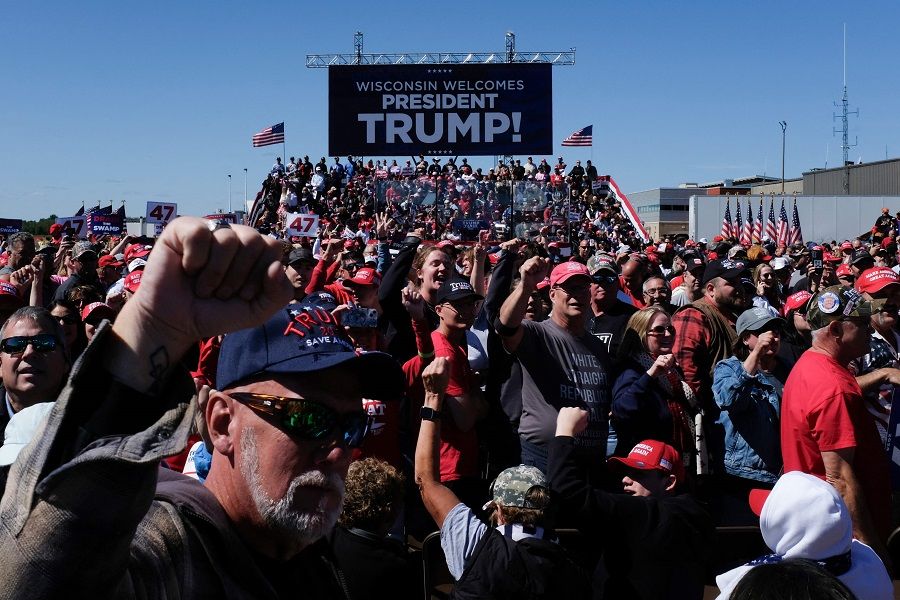
Some of them became Trump fans because they identify with his ideas, while others support him out of opposition to the Democratic Party. Some seem to project their admiration for authoritarianism from their home country’s politics onto the US’s electoral politics, while others have entered a so-called spiritual realm, supporting Trump without reason, and even insulting or violently harassing Chinese Americans who oppose him.
While it is not uncommon for anti-Trump individuals to also hurl criticisms and insults at Trump fans, there has not been any know cases of violent harassment so far.
The divide and opposition between Trump’s fans and haters appears to be the first “cultural war” among Chinese Americans over American politics, and it is certainly worth observing and analysing. I would like to offer my two cents here and hopefully spark further discussion.
In fact, these supporters of Trump, who may seem to be at odds with their traditional ethnic and political leanings, reflect the diversification of demands in Chinese Americans’ personal interests as well as their increased participation in politics.
From the far left to the far right, ethnic Chinese individuals are actively participating. Prominent Chinese American figures can be found in both major parties, demonstrating that ethnic Chinese are increasingly making their mark in political positions with growing influence, energy and enthusiasm.
Even though the Democrats’ social and ethnic policies since the Second World War were perhaps more beneficial to immigrant Chinese who are part of the ethnic minority, many Chinese Americans have already been deeply integrated into the so-called mainstream society — they have personal interests, a sense of belonging as well as needs that differ from that of other ethnic minorities and immigrants. This is both a normal and natural occurrence.
In contrast, they view Biden and Harris as more accommodating and ineffective in their dealings with Beijing, which they believe hampers progress toward political reform in China.
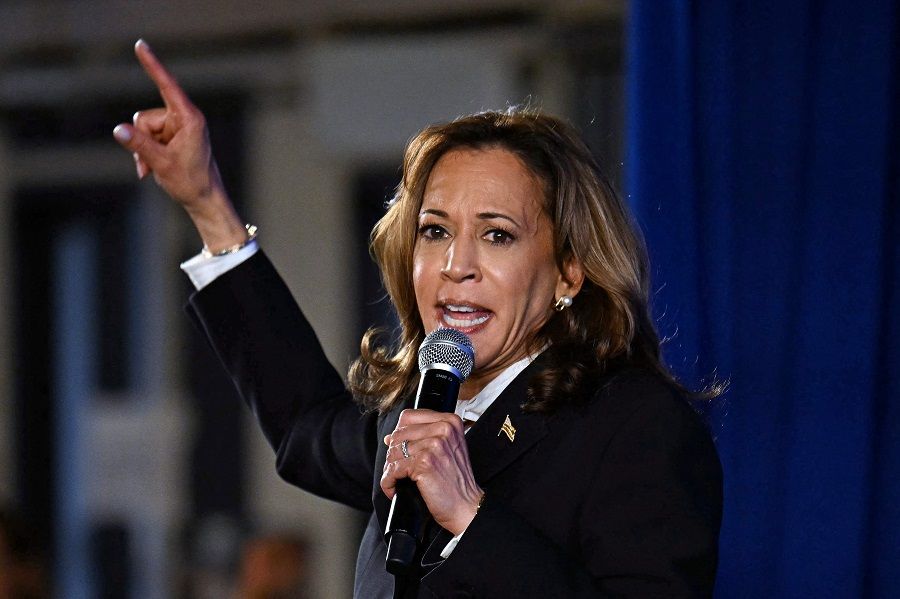
Interestingly, the intense dichotomy between Trump fans and haters — which seemingly has nothing to do with China — especially the extreme passion of Trump supporters, deeply reflects the “patriotism” and “nostalgia” complex that many ethnic Chinese have towards their Chinese motherland.
For many ethnic Chinese supporters of Trump, the primary motivation is his strong stance against the Chinese government. They believe his assertive and uncompromising approach could compel China to make changes that align with their own vision. In contrast, they view Biden and Harris as more accommodating and ineffective in their dealings with Beijing, which they believe hampers progress toward political reform in China.
Whether such thinking is accurate or could have the opposite effect warrants further discussion, I reserve my judgement for now.
Misguided ‘patriotism’ towards motherland?
To vote on the basis of a candidate’s attitude towards another country is a classic example of what electoral studies call “single-issue voters”. In democratic politics, single-issue voters are particularly susceptible to manipulation, and their choices often lead to outcomes that might be contradictory to their broader interests — an outcome that can be quite paradoxical.
For instance, consider female voters who support politicians opposed to women’s rights, or residents of red states (Republicans) who rely on substantial welfare yet oppose a large federal government. Similarly, there are blue state (Democratic) voters who support a large federal government while their states contribute significantly to welfare programs in red states.
Perhaps they are unaware that, over the past decade, both political parties have adopted similar policies toward China, with differences mainly in the specific tactics, language and rhetoric used to express them.
These ethnic Chinese voters who base their decisions solely on a candidate’s rhetoric and stance toward China — without a full understanding of the underlying policies and their rationale — are at risk of voting impulsively driven by misguided “patriotism”, leading to hasty and ill-informed decisions.
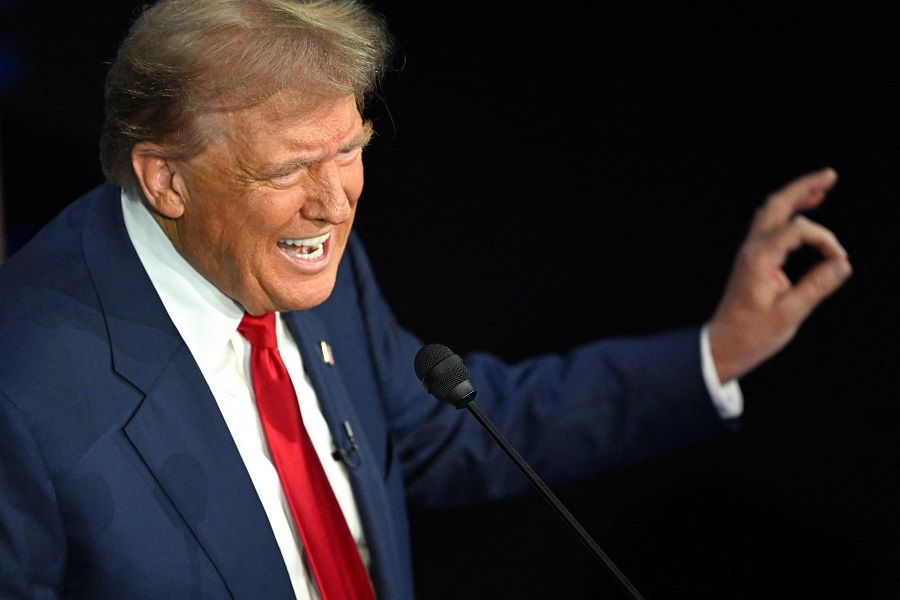
Perhaps they are unaware that, over the past decade, both political parties have adopted similar policies toward China, with differences mainly in the specific tactics, language and rhetoric used to express them.
Despite the contentious and polarised nature of the US Congress, it has recently passed numerous China-related bills with remarkable consistency and unanimity. The China policies of both the Trump and Biden administrations have been largely similar. Notably, Biden is the first US president in over 40 years not to visit Beijing, reflecting a particularly hard stance.
Good for the nation and the future?
Many Chinese individuals’ concerns are rooted in their personal interests and experiences. They are frustrated with the politically correct nature of “wokeism”, worried about elite universities considering affirmative action in admissions, concerned about uncontrolled borders and a surge of illegal immigration, and troubled by high taxes, among other issues.
However, these “bad policies” are no longer unique to any one party. For instance, Asian students, who excel in competitive testing, make up 7% of the total population but represent an even higher percentage in university admissions. At MIT, for example, 47% of this year’s incoming freshmen are Asian.
Whether this situation is wise, and whether it truly benefits the long-term interests of the US and Asian Americans warrants further examination.
Ultimately, the level of competition for admission to prestigious universities has little to do with who the president is. The promises of change and reform on issues such as taxation, law enforcement, government deficits and national debt from both parties often serve more as election slogans than as actionable plans. Candidates’ grand pledges about spending and saving should be taken with a grain of salt, as it is Congress, not the White House, that controls the public purse.
Be it Trump’s fans or haters, Chinese Americans are actively participating and writing a new chapter in American politics, which is a positive thing.
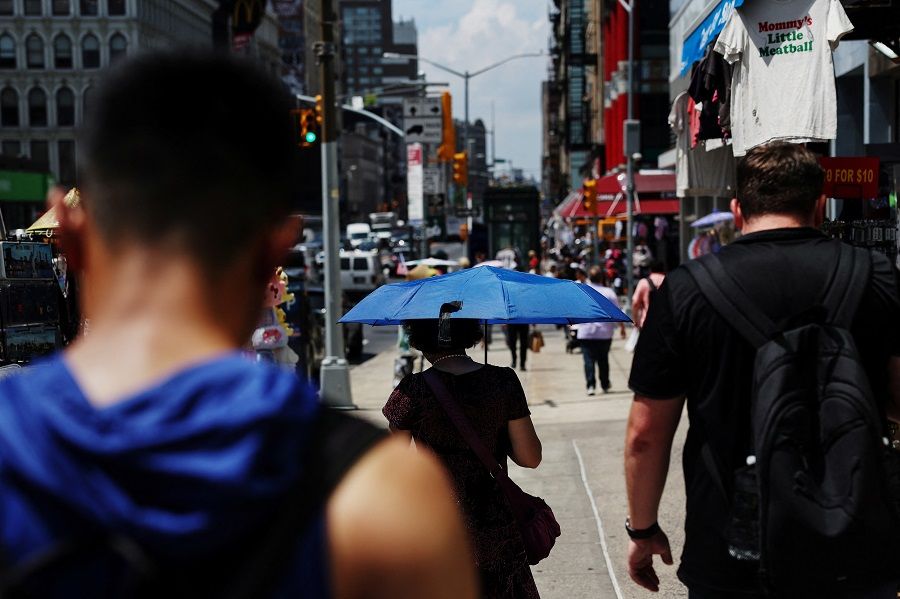
Some friends feel that the Republicans want to be in power because they want to turn the capitalism dial all the way up, so that hard work is rewarded with wealth. Others feel that the Democrats want to be in power because they want to go all in on socialism and turn the US into China.
In fact, they are either overly anxious and simplistic in their thinking, or have been misled by the political propaganda of the parties. Additionally, the inexplicable racism or rejection of African Americans, Indians and women, which is unfortunately present among some ethnic Chinese individuals, is a reprehensible issue that should be condemned and addressed.
Be it Trump’s fans or haters, Chinese Americans are actively participating and writing a new chapter in American politics, which is a positive thing.
Most importantly, when the time comes, everyone should remember to vote for a candidate who truly deserves your support — someone who will be most beneficial both for yourself and for the country as a leader.

